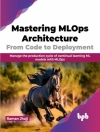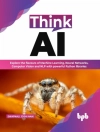Requirements engineering is the process by which the requirements for software systems are gathered, analyzed, documented, and managed throughout their complete lifecycle. Traditionally it has been concerned with technical goals for, functions of, and constraints on software systems. Aurum and Wohlin, however, argue that it is no longer appropriate for software systems professionals to focus only on functional and non-functional aspects of the intended system and to somehow assume that organizational context and needs are outside their remit. Instead, they call for a broader perspective in order to gain a better understanding of the interdependencies between enterprise stakeholders, processes, and software systems, which would in turn give rise to more appropriate techniques and higher-quality systems.
Following an introductory chapter that provides an exploration of key issues in requirements engineering, the book is organized in three parts. Part 1 presents surveys of state-of-the art requirements engineering process research along with critical assessments of existing models, frameworks and techniques. Part 2 addresses key areas in requirements engineering, such as market-driven requirements engineering, goal modeling, requirements ambiguity, and others. Part 3 concludes the book with articles that present empirical evidence and experiences from practices in industrial projects.
Its broader perspective gives this book its distinct appeal and makes it of interest to both researchers and practitioners, not only in software engineering but also in other disciplines such as business process engineering and management science.
Table des matières
Requirements Engineering: Setting the Context.- State-of-the-Art Surveys of Requirements Engineering Process Research.- Requirements Elicitation: A Survey of Techniques, Approaches, and Tools.- Specification of Requirements Models.- Requirements Prioritization.- Requirements Interdependencies: State of the Art and Future Challenges.- Impact Analysis.- Requirements Negotiation.- Quality Assurance in Requirements Engineering.- The Next Practice in Requirements Engineering.- Modeling Goals and Reasoning with Them.- Managing Large Repositories of Natural Language Requirements.- Understanding Ambiguity in Requirements Engineering.- Decision Support in Requirements Engineering.- Market-Driven Requirements Engineering for Software Products.- Requirements Engineering for Agile Methods.- Requirements Engineering for Web-Based Information Systems.- Studies and Industrial Experience.- Requirements Engineering: A Case of Developing and Managing Quality Software Systems in the Public Sector.- “Good Quality” Requirements in Unified Process.- Requirements Experience in Practice: Studies of Six Companies.- An Analysis of Empirical Requirements Engineering Survey Data.- Requirements Engineering: Solutions and Trends.
A propos de l’auteur
Dr. Aybüke Aurum is a senior lecturer at the School of Information Systems, Technology and Management, University of New South Wales. She received her BSc and MSc in geological engineering, and MEng Sc and Ph D in computer science. She is the founder and group leader of the Requirements Engineering Research Group (Req Eng) at the University of New South Wales. She also works as a visiting researcher in National ICT, Australia (NICTA). She is chief editor of ‘Managing Software Engineering Knowledge’ published by Springer in 2003. Her research interests include Management of Software Development Process, Software Inspection, Requirements Engineering, Decision Making and Knowledge Management.
Prof. Claes Wohlin is a professor in Software Engineering at the School of Engineering at Blekinge Institute of Technology in Sweden. Prior to this, he has held professor chairs in software engineering at Lund University and Linköping University. He has a M.Sc. in Electrical Engineering and a Ph.D. in Communication Systems both from Lund University, and he has five years of industrial experience. Dr. Wohlin is co-editor-in-chief of the journal of Information and Software Technology published by Elsevier. He is on the editorial boards of Empirical Software Engineering: An International Journal, and Software Quality Journal.












